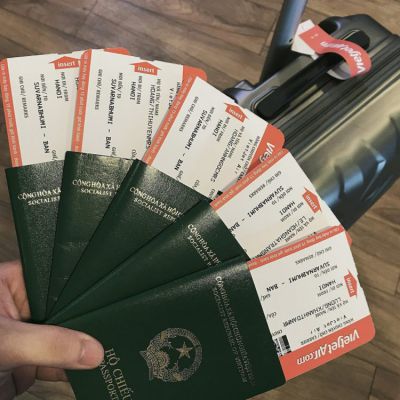NOTES ABOUT BAGGAGE BOARDING
Going to Japan to study abroad or to work abroad, there are many problems to prepare. To avoid carrying prohibited or overweight items – you should refer to the following article for the best preparation. The article covers all issues about prohibited and restricted items, notes when preparing luggage, ...
1. REGULATIONS ON FURNITURE IN BAGGAGE WHEN GOING TO JAPANESE
1.1. Prohibited items to bring
- Recently, Japan's Ministry of Agriculture, Forestry and Fisheries has issued a notice to passengers arriving in Japan about bringing luggage on a plane into the country. As follows:
From March 1, 2020, the Japanese Ministry of Agriculture, Forestry and Fisheries requires passengers to bring plants (fresh foods, processed foods, vegetables, fruits, plant products...) to Japan. :
– Submit a phytosanitary certificate issued by the government of the exporting country.
– Comply with the quarantine inspection based on the Plant Protection Law of Japan.
– In case guests do not present the above documents, all food will be destroyed. Passengers will be fined 1 million Japanese yen (equivalent to about 200 million VND) or imprisoned for up to 3 years.
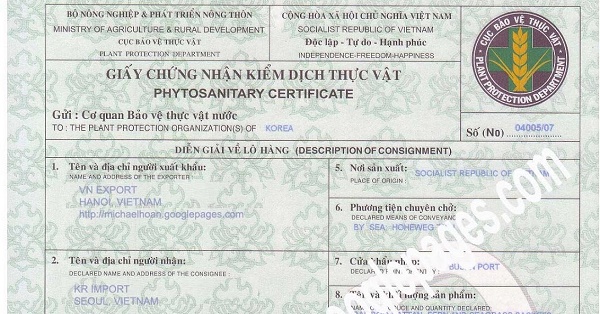
(Sample image of phytosanitary certificate)
In addition, the prohibited items are specified in advance as follows:
- Types of explosives: bombs, mines, firecrackers.
– Flammable substances: gas, alcohol, gasoline, paint.
- Toxic chemicals, corrosive, infectious, oxidizing substances.
– Briefcases, safes, things with alarm devices
– Things that are prohibited to be transported according to the regulations of the regions that the plane flies through.
– Devices can operate on their own using lithium batteries.
– For some airlines, it is also not allowed to bring durian on the plane, including hand luggage and checked baggage. Because the smell of this fruit is quite "sensitive" to many people
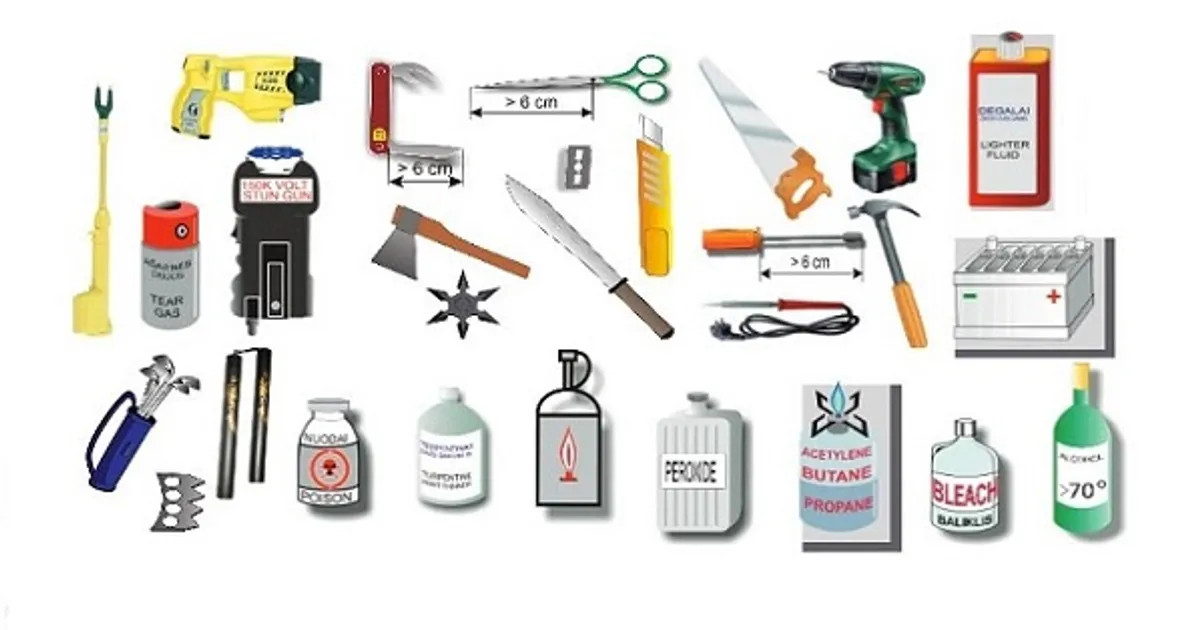
(Pictures of prohibited items on the plane)
1.2. Types of liquids allowed
- Carrying liquids must be kept in glass containers, tightly closed. The bottle must be placed in a transparent plastic bag, each person can bring only 1 of this bag.
- Medicines must clearly state the name and address of the doctor and the passenger.
- Milk and food for infants must be accompanied by infants.
– Other liquids purchased at duty-free shops at the airport or on board the aircraft will not be restricted according to the above regulations, but must still be stored in transparent plastic bags, inside with receipts clearly stating the destination. on sale, date of sale in an easily visible place, seal the bag carefully.
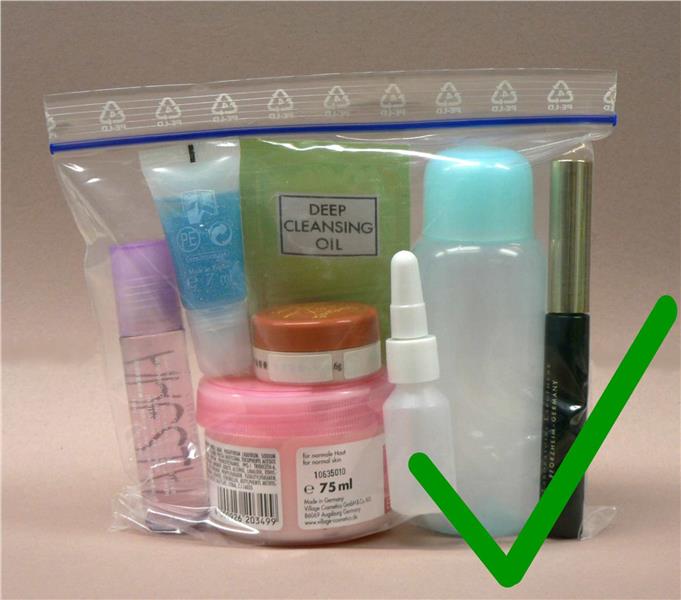
(Carrying liquids must be kept in a transparent and sealed bag)
1.3. Restricted items in hand luggage
– Types that are considered weapons or can become weapons: knives, batons, swords, sticks, razors, hammers, pliers, needles.
If you have a license to use guns, if you want to bring it, you must be transported as checked baggage, even state officials or employees who perform important duties such as protecting leaders, escorting criminals, not carried.
– All battery types, except batteries used for personal items such as watches, cameras, phones, etc. As for lithium batteries with a capacity of 100 – 160 Wh, you can only bring a maximum of 2 and must carefully wrapped to avoid short circuit.
– Restricted items according to the regulations of the countries the aircraft flies over.
1.4. Items that are restricted from being shipped by consignment
- Fragile objects such as glass vases, crockery.
Perishable foods such as frozen foods, vegetables, fresh foods.
– Fresh foods must be wrapped carefully so as not to affect other luggage.
– Other things with a characteristic, unpleasant smell will not be transported if not sealed, ensuring no odor to the outside, up to 3 liters or 3kg of liquid and 0.5kg for other items.
- Electronic items such as cameras, ipads, laptops.
Valuables such as money, real estate documents, negotiated contracts, personal jewelry.
- Other objects according to the regulations of the countries and territories that the aircraft flies over.
2. BAGGAGE WHEN TO JAPANESE
Generally, carry-on baggage is divided into two categories:
– Hand luggage (hand/cabin luggage)
– Checked luggage.
2.1 Luggage
– It is the item you bring with you when you board the plane and keep it in the box above your head, under the seat or on your body.
– Weight: in terms of regulations, not more than 7kg.
– Dimensions: passengers (except for small children) are allowed one piece of hand baggage on board. Dimensions should not exceed 56 cm in height, 36 cm in width, and 23 cm in depth.
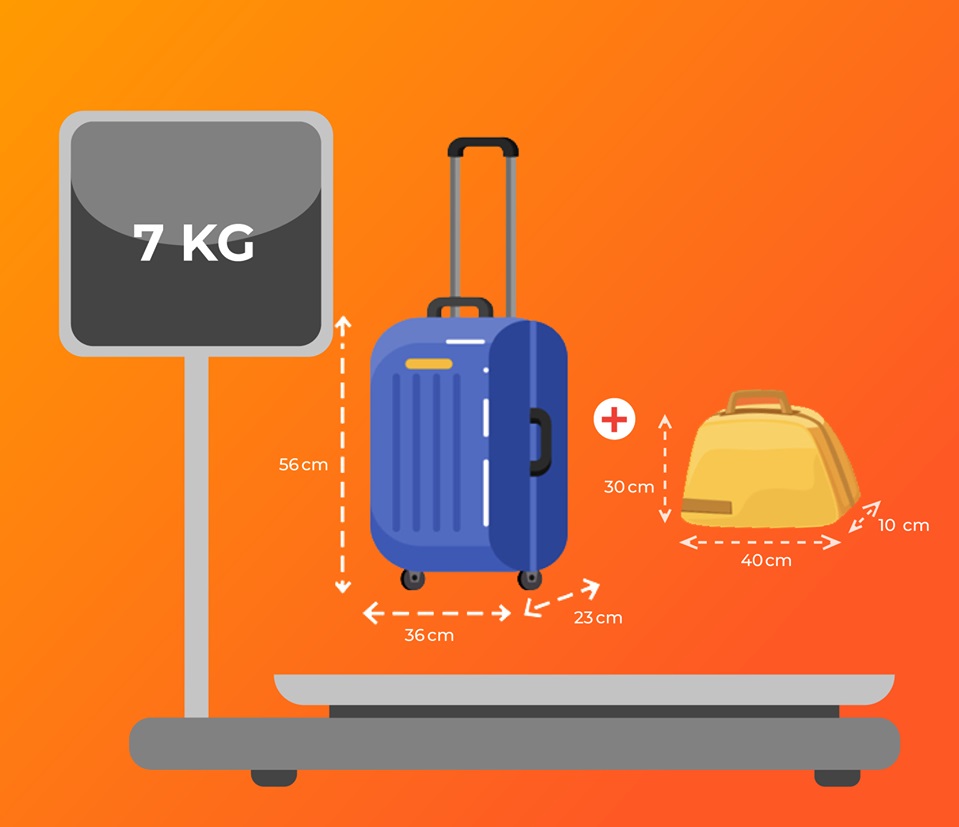
2.2. Signed luggage
– Usually heavy items, you are not allowed to bring on board, but must be sent when checking in.
– Weight: Depending on the type of ticket, you can send from 20 to 40 kg.
– Dimensions: height + width + width <= 203 cm
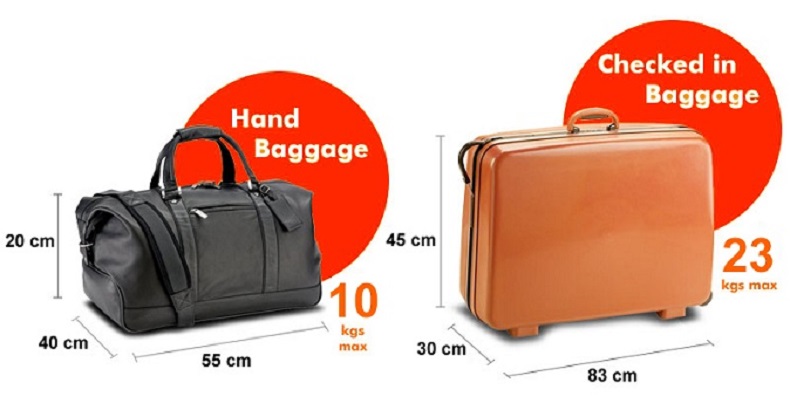
3. TIPS WHEN BRINGING BAGGAGE TO JAPAN
In order to pack well, international students and interns should prepare themselves a sturdy suitcase, a backpack, and a hand-carry bag (to hold documents).
– Remember to weigh your luggage before you fly to avoid being caught leaving your luggage at the airport or having to pay a high fee when you exceed the specified weight.
Regarding hand luggage:
Should use 1 bag for heavy objects such as books, notebooks and 1 small square catap to store small and heavy objects. Or can be worn in a compact backpack. If neatly arranged, you can carry 10-13kg.
If you go in the cold season, you can also bring a few coats and pants depending on the layout. However, you should not bring much because buying winter clothes in Japan is also very cheap and Japanese shirts are very warm, lighter, and more resistant to cold than Vietnamese shirts because they are designed specifically for the weather in Japan.
– Regarding checked baggage: Please note: if you buy a ticket with a checked baggage of 40kg, you will have to divide it into 2 pieces and each piece should not weigh more than 30kg (because many people don't understand what they think at first. is the total weight of checked baggage is 40kg, so when packing, pack 1 large suitcase and then pack more small suitcases.In many cases, packing enough weight and neat standards, but going to the airport, it takes a lot of time to unpack. time and hurry.
– Bring only necessary and regulated items.
– Valuables and electronics are always in hand luggage.
☞ SUPPORT FROM H&A
H&A understands the difficulties and problems of customers on the way to work and settle in Japan.
H&A is ready to accompany you on your way to a brighter future, please contact us for support and answers to all your questions.
Support services from H&A include:
✔Advice on choosing the right career with high salary
✔Complete documents and procedures according to legal regulations
✔Advice on accommodation, support to book flight tickets, equip skills before leaving





